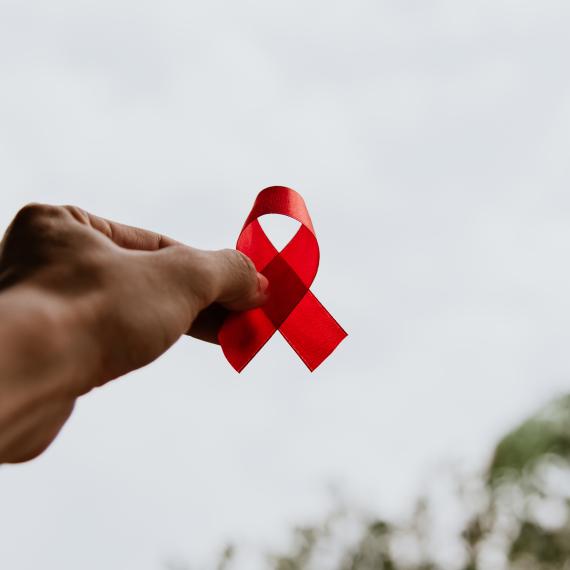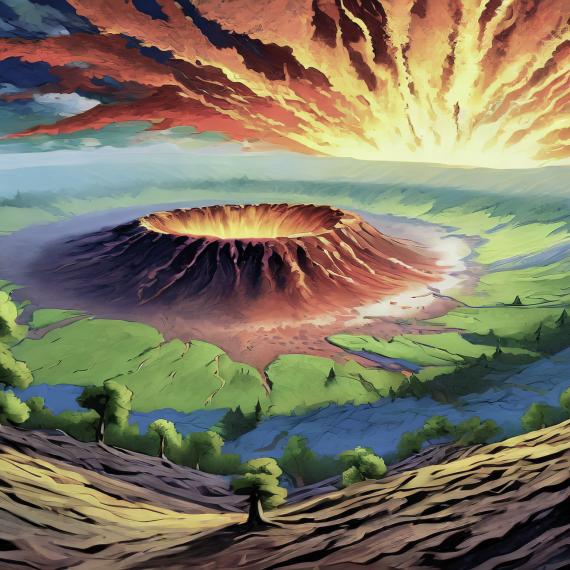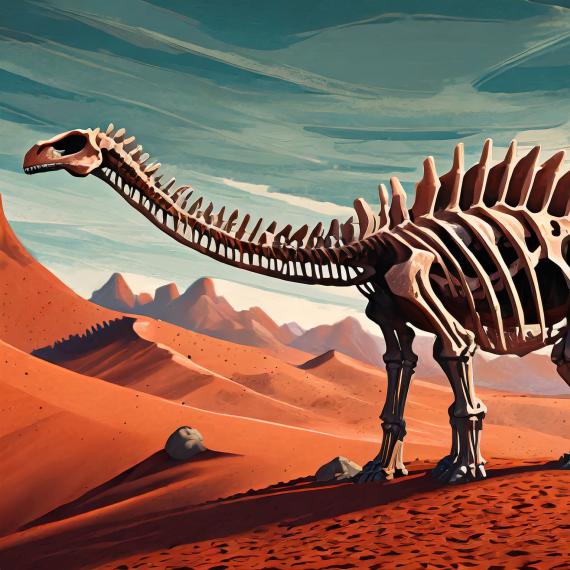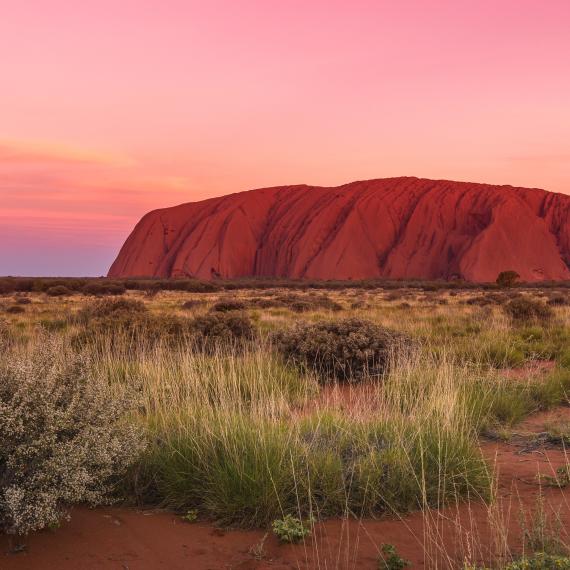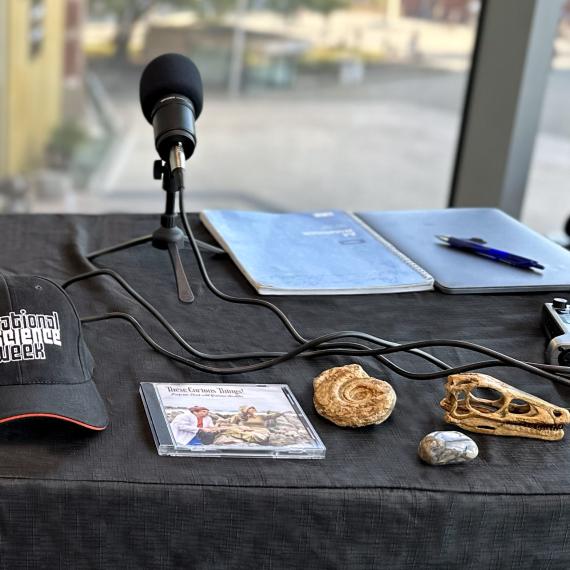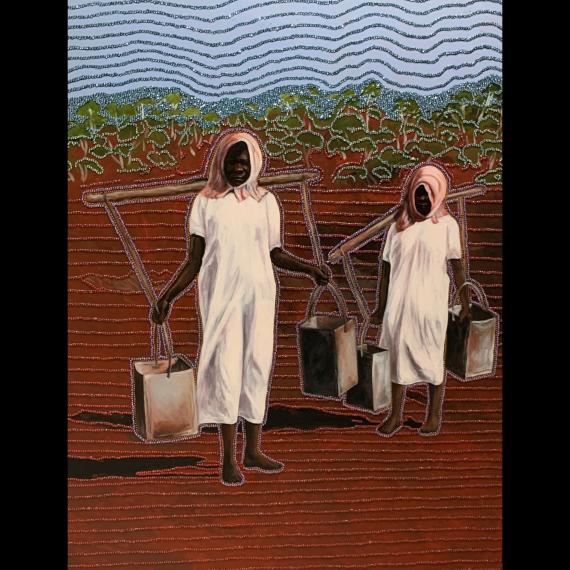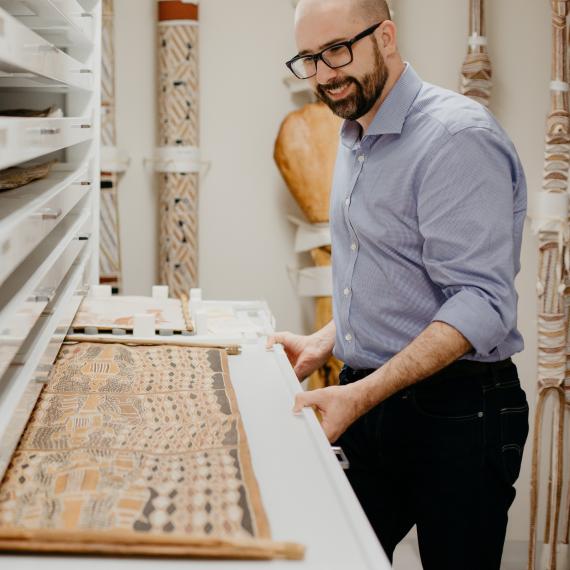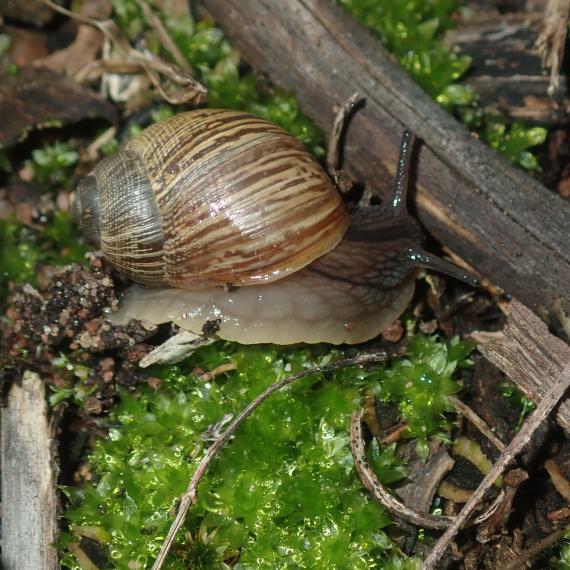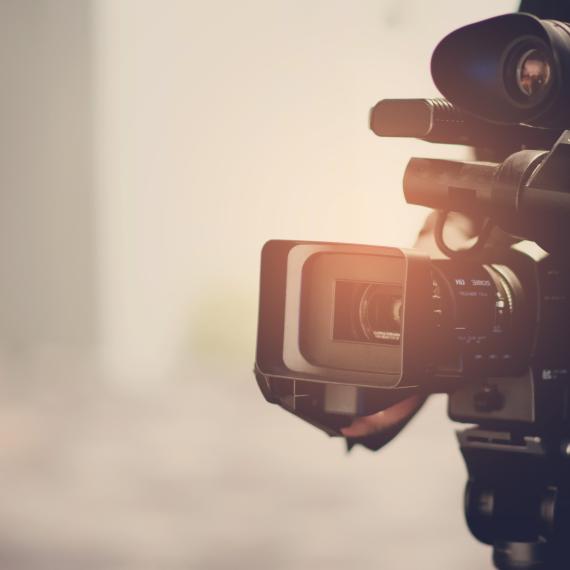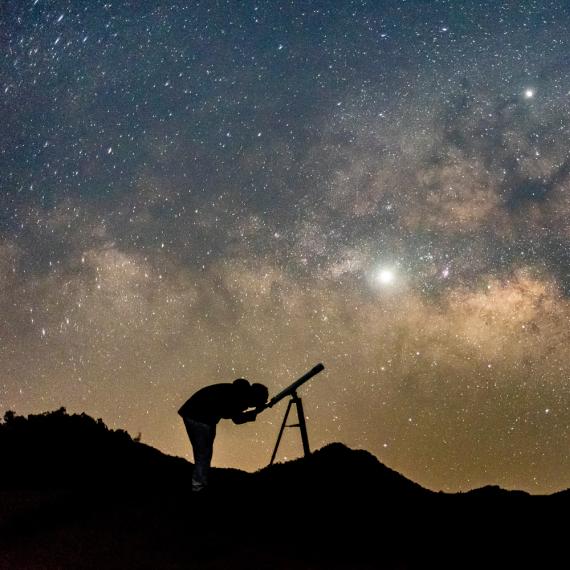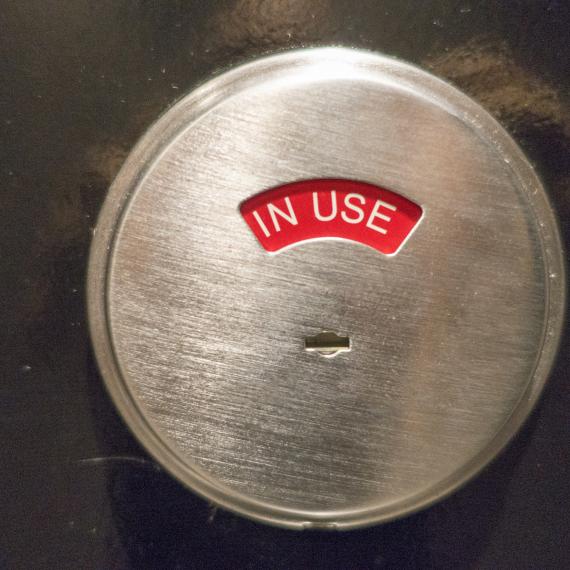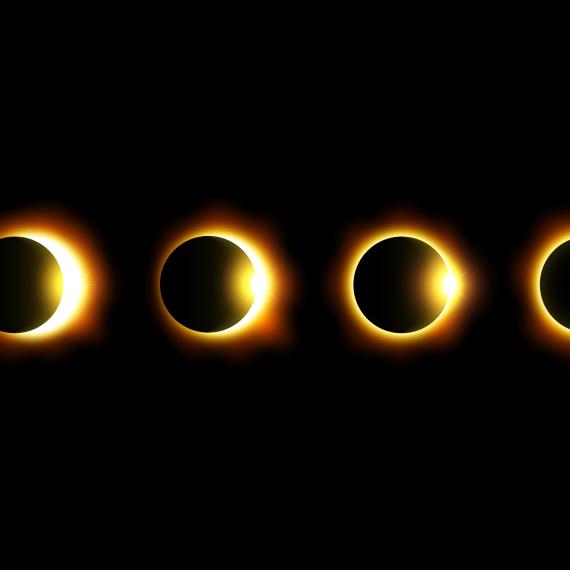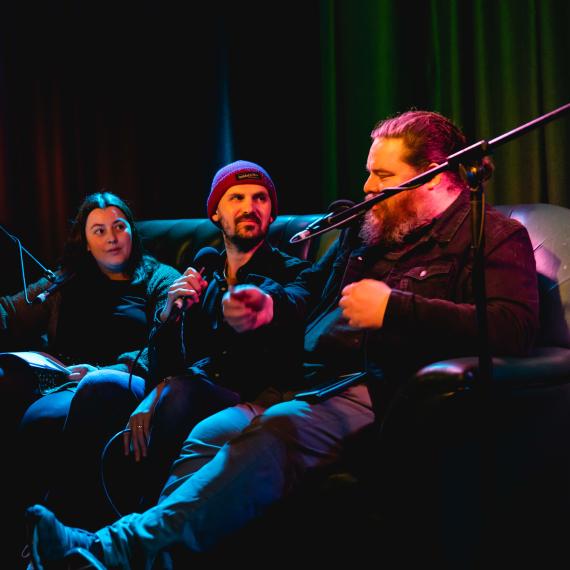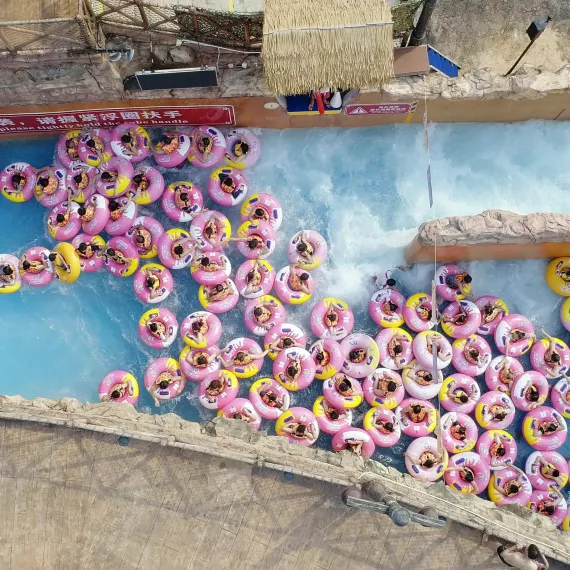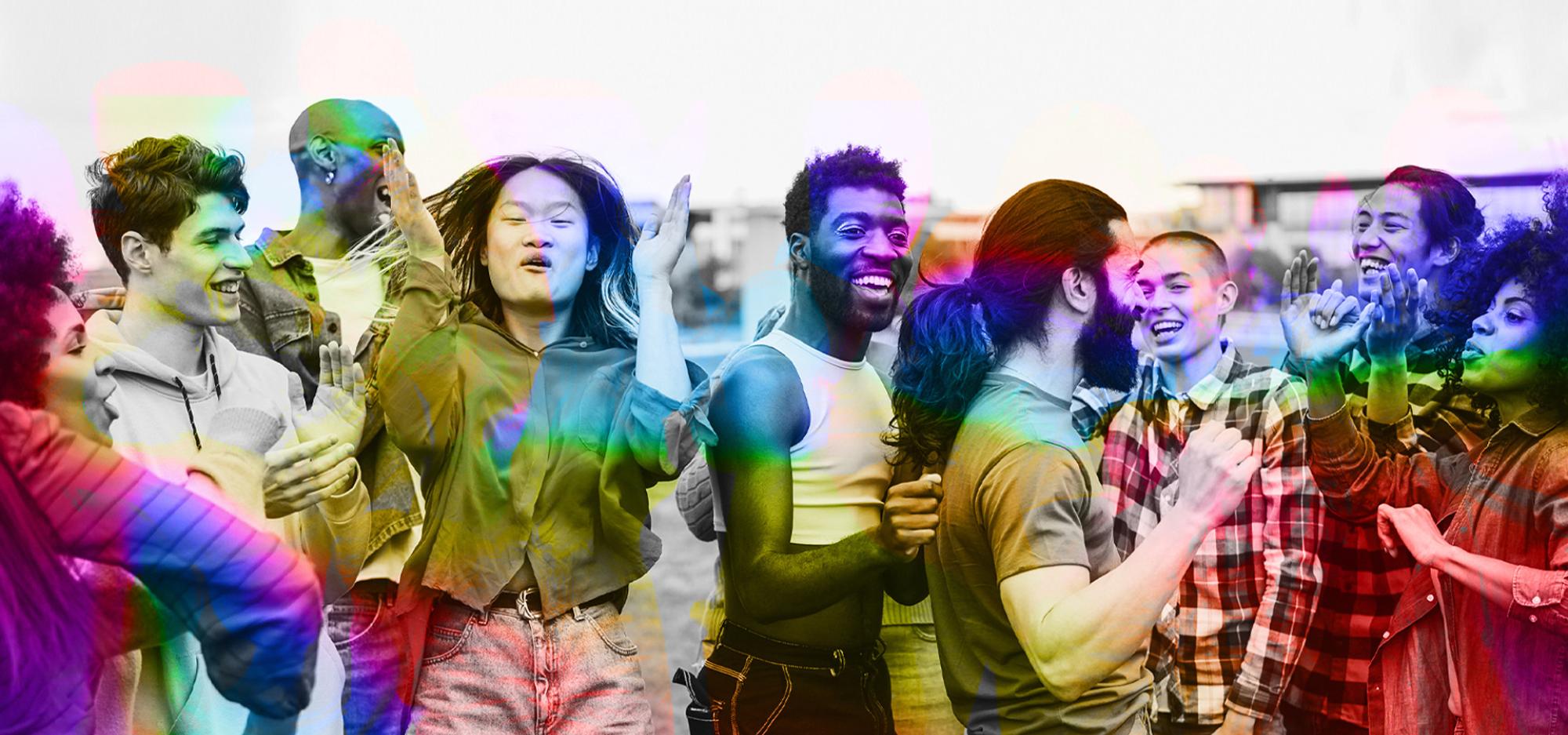
In Conversation: An Unexpected Party
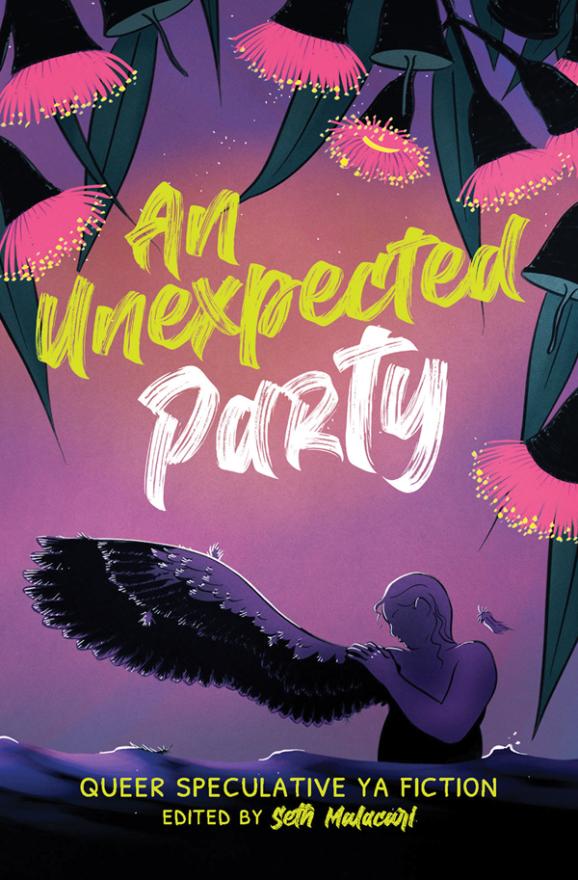
An Unexpected Party champions queer narratives by challenging stereotypes and exploring the many facets of identity.
Co-published by Fremantle Press, Get YA Words Out and edited by Seth Malacari, An Unexpected Party brings together the stories of emerging authors from the LGBTQIA+ community.
Written with wit, heart and honesty, these stories take queer protagonists outside the box of young adult romance and centre them at the heart of stories that involve magic, paranormal beings and adventure. Featuring trans and gender-diverse voices – asexual, aromantic, bisexual and more – the stories in An Unexpected Party are as diverse as their writers.
Join a panel of featured young LGBTQIA+ writers and storytellers as they delve into the fantastical realms and real-world struggles of this exciting new anthology.
This event is a co-presentation between the Western Australian Museum Boola Bardip and Fremantle Press.
Facilitator
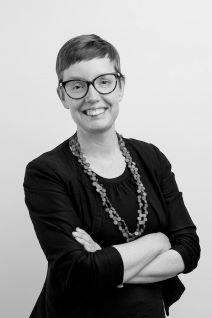
Dr Lauren Butterly is the CEO of Pride WA and is driven by a commitment to social justice, equity and inclusion. Prior to her current role, Lauren was a lawyer specialising in environmental law and protection of First Nations’ cultural heritage and a weekends presenter on ABC Radio. Lauren first started volunteering within the queer community as the President of Sydney’s LGBTQIA+ running club, and she remains a passionate slow runner (who is most concerned about having a good chat on the run). Both as a CEO and a runner, Lauren proudly challenges stereotypes about what it looks like to live with Multiple Sclerosis, having now lived with MS for nearly 13 years.
Speakers
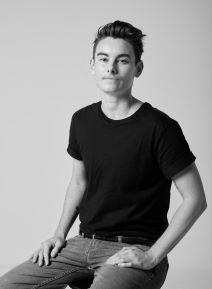
Seth Malacari (he/they) is an award-winning writer and member of the LGBTQIA+ community. Their work has appeared in Underdog: LoveOzYA Short Stories (2019). He is the founder of Get YA Words Out, has a Master of Arts (Writing and Literature) from Deakin University specialising in Queer YA and was the former chair of LoveOzYA.
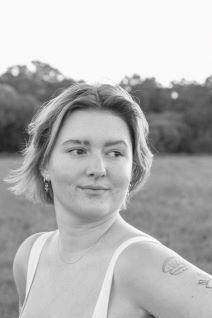
Em Readman is a nonbinary writer hailing from Meanjin (Brisbane) and residing in Boorloo (Perth). Their work has been published by The Suburban Review, Bowen Street Press, Aniko Press and others. They often write about family, memory, and queerness, with a focus on the transient natures of all three. In 2022, Em won the Hunter Writer’s Centre Blue Knot Award.
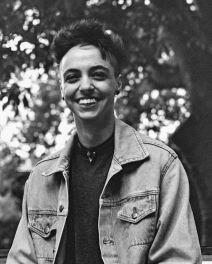
Jesse Galea (they/he) is a transmasc writer living and creating in Boorloo. They’re a future librarian and spreadsheet enthusiast who has recently graduated with a Bachelor of Arts in Creative Writing from Curtin University. When he’s not writing, he can be found cycling through several crafty hobbies (most recently, bookbinding) or unashamedly listening to Midwest emo. As a teenager, he didn’t have access to LGBTQIA+ YA and so didn’t know these stories existed. Since discovering them in adulthood and devouring as many as he could get his hands on (something they’ve never stopped doing), he’s proud to be able to add his voice to the ever-growing sea of LGBTQIA+ YA writers. Their writing has appeared in Pulch Mag, #EnbyLife, and just femme & dandy, among others.
About In Conversation
A safe house for difficult discussions. In Conversation presents passionate and thought-provoking public dialogues that tackle big issues and difficult questions featuring diverse perspectives and experiences. Panelists invited to speak at In Conversation represent their own unique thoughts, opinions and experiences.
Held monthly at the WA Museum Boola Bardip, in 2023 In Conversation will take different forms such as facilitated panel discussions, deep dive Q&As, performance lectures, screenings and more, covering a broad range of topics and ideas. For these monthly events, the Museum collaborates with a dynamic variety of presenting partners, co-curators and speakers, with additional special events featuring throughout the year. Join us as we explore big concepts of challenging and contended natures, led by some of WA’s most brilliant minds.
Want to catch up? Listen to previous conversations now.
-
Episode transcript
INTRO
Welcome to In Conversation, a series brought to you by the Western Australian Museum, Boola Bardip.
In conversation is a safe house for difficult conversations and passionate and thought-provoking public dialogs that tackle big issues and difficult questions, led by some of WA’s most brilliant minds.
In Conversation is recorded on Whadjuk Noongar Boodjar. The Western Australian Museum acknowledges and respects the traditional owners of their ancestral lands, waters and skies.
LB:
Good evening, Kaya Wandjoo. My name is Lauren Barkley. I'm the CEO of Pride WA and it gives me great pleasure to welcome you here tonight. I'd like to acknowledge the traditional owners here on Whadjuk Nyoongar Boojar and pay my respects to their Elders past, present and emerging and also pay particular respect to the importance of the Indigenous First Nations community to our LGBTQIA+ community.
I'm so excited for tonight. I was so lucky to be able to have a chat with these three authors about two weeks ago when we were first discussing this panel, and I just came away from that with such amazing energy and so I'm so excited to be able to bring that to this audience tonight.
This book, An Unexpected Party, is groundbreaking. It’s stories of trans and gender diverse voices, of asexual voices, of a-romantic voices, bisexual voices, unapologetically queer voices. This book is the answer to, you know, where is the diversity in the LGBTQIA+ representation in young adult fiction? This is a book that presents voices that haven't always been able to be heard.
So it's such an amazing collection of stories that we'll be celebrating tonight and learning more about how this collection of stories came about because it is such an exciting story of how Seth came to undertake this project and then how it came to become a Fremantle Press book.
We've got three of the authors with us here on the panel tonight, but also some more of the authors in the audience as well, which is fabulous.
So I would like to introduce you to the panel here tonight. To my left here we have Seth Malacari, who is an award winning writer and member of LGBTQIA+ community. Their work has appeared in underdog LoveOzYA short stories. Seth is the founder of Great YA Words Out, they have a Master of Arts in Writing and Literature from Deakin University, specializing in queer Y.A. and was the former chair of LoveOzYA.
Next is Jesse Galea, who is a transmasc writer living and creating here in Boorloo, Perth. They’re a future librarian and spreadsheet enthusiasts, which I love… both those things. Who has recently graduated, which we're very excited about with a Bachelor of Arts in Creative Writing from Curtin University. Congratulations on just finishing all the coursework just a few weeks ago.
Jesse has writing appearing in Pulch Mag, EnbyLife and Just Femme & Dandy among others.
We've also got Em Readman. Em is a non-binary writer hailing from Meanjin or Brisbane and residing here in Boorloo Perth. Their work has been published by The Suburban Review, Bowen Street Press, Aniko Press and others. They write often about family, memory and queerness with a focus on the transient nature of all three.
In 2022 Em won the Hunter Writer’s Centre Blue Knot Award. Please join me in welcoming our panellists tonight.
(CLAPPING)
LB:
Part of this collection and part of why it is so special is the story of how it came about. Part of the story of how it came about was Seth's rage at the stories that were missing in YA fiction in particular. So what was that Rage? What started this project for you?
SM:
Yeah. So pretty much umm I just love trawling like.. good reads and stuff to find books and reviews, and that's just my hobby. I don't do anything else, just that. And there was this hardly any queer young adult books published in Australia that were anything like me, anything like I wanted to write, anything like how I identify… barely any trans books.
And I just love to rant about that to my long-suffering girlfriend. And it got to a point where I said, maybe I should just do it myself. And she was like, Yeah, it's like, please, like, shut up about it and just go do that. So I thought, okay, can I actually do this?
And, you know, once I had a thought about it, I was like, Yeah, why not? Why not me? Why can't I do this? And so I did the initial call that on Get Your Words Out, and we got ten entries from that first round and I didn't put this genre on it at the time. I just said ‘if you haven't seen yourself in a story before and you're queer and you're emerging, send me some stuff’ and we got ten stories out of that very first round.. four of them which ended up in the book.
And those four were all speculative in nature. So it's like, okay, this is what people are writing, this is what people are interested in. And then we expanded out into Fremantle Press after that.
LB:
And Jesse, how did you come to become involved in the book?
JG:
I heard about it through Pulch which is the WA youth focus lit mag because I had work in their second print edition and after that came out, (Unknown) were contacted by someone saying that Fremantle Press were potentially looking for some trans writers and pointed us in the right direction. I ended up missing the first like deadline cause I was busy with uni, then got in the second one.
LB:
Many of the best stories start with, you know, ended up missing something but then I ended up getting there in the end. So, you know, there we go.
Em how did you get involved?
ER:
I was I was quite fresh. Obviously, this is a national collection, but I was quite fresh to living in WA at the time and I was going to a lot of send of stories events and there was a story lounge on Hay Street Mall and I'd seen a bit of the Get Your Words Out stuff happening, but there was a sort of panel conversation in the round discussion there that had Seth and some of the people from Freo Press and talking about, you know, queer and trans writing. And I went on to that. And then the second call that I believe maybe I got the timelines wrong. It was open when that event happened.
SM:
Yeah, yeah. So I opened it in March the first one, it started in March of 2022.
ER:
Yeah.
SM:
But then I don’t know when Freo joined that. It ended in November 2022.
ER:
Yes.
And I submitted it like the very last day.
SM:
All the stories either came in on the very last day or like the very first day and everyone in between. I was like, You guys, you guys didn’t even try.
ER:
As I say, diamonds are built under pressure. That's how I found out about Seth and the work they were doing.
SM:
Yeah. We also ran into each other like six times last year.
ER:
So many Pride events.
SM:
So, yeah, I just kept seeing Em everywhere. And because I knew they just moved from Brisbane, I was like, Are you okay? Like, do what you doing? Like, and we just kind of adopted you by accident.
ER:
Yeah, exactly. When we walked up at the same time to pick up the Pride Parade wristbands for our respective entries and I was like, ‘I promise I'm not stalking and also just submitted to your collection’. No pressure. You could say like I'm not. Yeah. Anyway.
LB:
Pride does have that effect, though. It's a great month and you do see everyone all the time, you know?
ER:
Yeah. Yeah. I thought people were joking, like, this is a small place. I was like, Yeah, yeah, yeah.
SM:
It's just me.
(LAUGHTER)
LB:
It really is.
SM:
I’m just everywhere.
ER:
Yeah, yeah. But nice.
LB:
I mean, I think we will talk about this a bit more as we go on, but the friendships that you've made through this, given the types of stories in the community that you were bringing together, must be a big part of this journey now.
SM:
Yeah, yeah, definitely. Like that's one of the reasons I started Get Your Words Out in the first place was because I couldn't find community in the queer writing space, especially in young adult area. But, you know, I thought pretty much, my thing is if I want something and I can't find it, I just make it myself.
So I couldn't find communities so I was like, I'll just make one myself. And so the friendships that have been come out of this, not just for myself, but seeing them all support each other on their social media. They all repost each other's stuff and they’re all in their comments, like boosting each other up and it's just been really lovely to say yeah, because as the community now they have each other, you know, they have always have those people now who've been on that same experience as them.
Because sometimes it can be hard once you've been published to people who haven't been published, understand, like the pressures you went under and things like that. So now they all have each other there and yeah, it's really beautiful.
LB:
Yeah. I mean, lifting each other up and going on to the next book project, I'm absolutely sure.
So you received all these entries, and I know you put some loose parameters around what you were looking for, but how did you go about choosing what ended up in the collection?
SM:
I just closed my eyes and I just clicked randomly yeah, just went through all.
Yeah. So I put the parameters on it as it was open to the entire community but I said specifically, ‘If you're in the, the second half of the acronym - T down, particularly you, you know, so you're kind of encouraging that half more so than anything.
The only parameters I put on it was yet to be emerging so that was you couldn't have a full-length book published. And the reason for that was there's quite a lot of barriers for getting published as a queer person and the people that have been published already, most of them aren't trans. So I was like, I don't I really want you anyway (laughs), you know, like it didn't make sense to me.
Yeah. So I wanted these new voices because some of the reason, you know, a lot of the reasons why we don't have a lot of trans literature in Australia is not because there's not good writers, it's because they haven't been given a chance. So I was like ‘everyone come’. The only other parameter I put on it was, yeah, the speculative genre and that only evolved after those first people had submitted. And I was like, these are all speculative, let's roll with that.
I also don't really love contemporary stuff, so that was personal and the final thing I put on it was I didn't want any trauma stories in terms of transphobia or homophobia like bullying, just these really horrible narratives because trans teenagers don't need to read about that stuff.
You know, that's, that's enough of our world as it is. They know about that. It's in the media all the time. And there are books like that that are just full of trauma and I wanted this to be something different where it teenagers could just find joy in escapism.
LB:
Absolutely and Jesse I know that you, you have expressed that you didn't see this kind of writing growing up and you feel an incredible amount of pride now being able to write in this genre for the community. How did those instructions come to you and how did you feel about those parameters when you were writing?
JG:
Well, I do mostly write contemporary stuff,
SM:
Yours is like contemporary, yours spec light.
JG:
Like one step away from contemporary. Um because I don't think I read a book or young adult book any book with a gay protagonist until I was like 19 and then a trans protagonist until I was like 22 and I'm 25 now.
Um, and so like now being able to read and hopefully write these books that I didn't know existed as a teenager and would have like literally changed my life as a teenager is really special. Yeah.
LB:
And Em the instructions for you, did you find them challenging or were they what you were looking for?
ER:
Um I really liked the.. I sort of honed in on the lack of, like, romantic- meet- cute stuff. That was the kind of bit that I was like, that's really, really interesting to sort of explore that, which is why I went for like, it's about two siblings who are, you know, going through it, wwhich was really nice to kind of explore that and just explore like relationships that are, you know, informed by the people's queerness, but they don't sort of it doesn't kind of hang in the balance of the purpose of the story.
Yeah, I really enjoyed being able to do that. And yeah, just also the sort of challenge from Seth to kind of expand into like split pronouns and that was really cool to work with and also edit as well. That was really fun experience to kind of do something that was less common to write about. And I was like, I'm just going to trust my reader and they will figure it out.
And they did so and so far, if you read it and you got it. Yeah. Umm
SM:
Ems just lurking at the bookshops to read it.
SM:
But yeah. How I actually ended up picking them all. Firstly, I just, I was just looking for good stories as I was reading through them. So I ended up with 75 in the end, as I was reading through them some, I was just like boring… and you know, and then, and some of them were too similar to each other so then I had the thing of picking out of the two stories, because we use the word magic in the, the callout a lot of people went very literal witches and wizards and stuff.
So it was just so many of them and I didn't want a wizard book. So some really good stories didn’t get in because I had to just pick what I wanted to get out of it. And then I was looking for a mix of the type of stories: genre, identity as well. I tried to not go too heavy on… we got a lot of transmasc stories, I think that's just because my connection to the transmasc community is so strong. So I got a lot of entries like that. So yeah, some of the stories, I just tried to balance them out with others. It's kind of complicated, but it sounds complicated, but it was actually quite easy. I was reading them and I was like, love that
LB:
And then just coming back to that magic, the idea of the book being both the magic and the mundane, that which I love. And one of the things and the, the introduction to the collection provides a really great background to some of the aspects that Seth’s just spoken about, but the idea being that previously, YA fiction in the LGBTQIA+ community really was either rainbows and pride parades or violence and death, and that was how Seth summarized it in terms of what had been presented in fiction up until that point and that was not what you want to hear. You wanted the everyday, the lived experience of our queer lives in this book.
SM:
Yeah, like when you're queer, that's every single day. Everything you do is informed by that. Like, that's the lens we live our lives through. You don't get to switch it on and it doesn't just pop up for Pride and only for the outside people outside the community only knowing us for that rainbow flag, excessive glitter stuff, or when something bad happens and we're negative headlines and someone dies.
That's a very skewed perspective to have with the queer community and for teenagers, that's a very like, dangerous binary to be going into when you're trying to form your identity, find out who you are if you think, I've got to be this super outrageous person. If that's not your personality, you go, okay, well do I have to be? What's going to happen to me? Whereas actually there's so many personalities within that queer community. You can be anything. You just are.
And so we want to show that more of just the human experiences that we all go through. Yeah.
LB:
Absolutely and so one of the aspects that Seth explains in the introduction is, you know, that it's not all pride parades and rainbows and excitements and that, you know, sometimes life is just boring life. That reminded me actually of the comedian Hannah Gadsby in one of her shows where she said, you know, I'd rather have a cup of tea on the couch than go to a Pride Parade. That was her sentiment for the night.
SM:
Yeah, I mean, same. No offence. Well, it's not really my vibe.
LB:
Yeah, Yeah, absolutely. Especially in early Uni, I really thought I had to be very outrageous to be queer. And then I realized I could just be my nerdy self and it was going to be okay.
That representation hasn't always been there. Yeah, most of the contributors are nerdy queers. Like, honestly.
SM:
Nerdy queers, they’re the best, definitely.
LB:
Now, um, so three different stories here from Seth also contributed a story as well as during the editing and the intro as well. Em’s already told us a little bit about Surge and it is it's intense about family and also about heat.
ER:
Yeah.
LB:
Reading about heat is actually something that was quite novel and unique to think about and to always feel actually.
ER:
Sorry. (LAUGHTER)
LB:
When you read this story, you feel that heat.
SM:
I felt sticky reading it.
LB:
Yeah, I felt sticky as well. So humid.
ER:
So Seth was saying I did a good job at building the world of my story so thank you so much for saying that. Yeah. I mean, unfortunately like, well, not unfortunately, but a lot of the sort of bits about heat because there's you know, it's… I'll give a quick rundown: It's about two siblings who are living together. Their father has had to, in Queensland, their father's had to move to Tasmania is a dystopian not too far in the future. I'm sorry. Me on the climate science… I was really going for It. Um have moved to Tasmania as a climate refugee and then it's the two of them. But the heat element. Well, I'm from Queensland, it's very humid there, but up until quite recently I was also binding in like my chest in in summer, not that safely either. So for the sake of the kind of gender euphoria and I think it does, it gets quite warm.
And so I was very informed by that lived experience. But I think when I was younger I was very… there were some people in my life, adults that took me very, very seriously. And, you know, when I was interested in things like, like climate change as the school strikes of climate were happening, who would you know who, you know, spoke to me like an adult, I think like for, for young people who get taken seriously, like everyone remembers the first adult that had a conversation with them, like they were a peer and not a child. And so I wanted to do that, I wanted to do that for my audience as well and not say like, you know, you're too young to be thinking about, you know, ecological things like that.
You're too young to be thinking about these big themes or things like that. And that was really the sort of like big part of wanting to write something that was so, yeah, intensely climate focused. Yeah. Because I want, I wanted young people to feel like their concerns are being taken seriously. Yeah, so, that was a bit of a rundown, but yes, it's very it's a very warm story for sure. Hot summers.
LB:
Absolutely hot summers. And bringing in that conversation about binding in a hot summer and the the medical element to it, because one of the siblings has a medical or paramedic background. And so the conversations that were going on in the family that were about care, but also, you know, taken… it was, you know, difficult conversations and I really wanted to touch on that because it's a conversation that many people may not have, have thought about before that the elements of heat, the elements of, of wanting to take care of the health, but also of the gender impact of that.
EL:
Yeah, I think it's a line that a lot of people tie between euphoria and safety. And I think you can't underestimate how much like euphoria is an emotional safety as well. And I think showing that juxtaposition between physical distress and emotional distress was something that was kind of quite… I think heat lends itself to that of like a sort of rising sensation and that sort of like, I guess maybe almost claustrophobia.
Yeah, I thought that was a, you know, a strong sort of way to do it. And then we, we really did put the… through lessons learned Seth and I definitely wove a lot of binder safety into it because we were like, well, you know, if you learned nothing from this story, read the instruction card that comes with the with the garment.
And there is a I think, a line that says, I've read the stupid instruction card. So yeah, we, we went for the educative element as well. So I was yeah, I was pretty stoked with that.
SM:
Yeah. Because it's, it is a huge issue that affects trans kids. Yes. Finding and I see for teens they can't access any top surgery or anything like that until usually when they're over 18.
So most of our readers, if a lot of our read are going to be binding if… if they're doing anything. So I did… when we doing the edits and it's like I don't want to take away from the story and just we don't want to preach like none of these stories are preachy, but I was like, we do have to be careful that someone's interpreting this.
We want them to feel there's a line between the story saying, don’t bind. Like, if the story we didn't do is strong enough, it would look like, oh no, binding is, is… make you… like it's unsafe. Don't do it. Because we're like, no, you absolutely do it if that's what we need, bind, but yeah, finding that balance between caring and also listening to your family or friends or trusted people who um caus Sasha and Jude they argue because they like they think that they don't get it, even though this is another.. Jude’s a trasnmasc person as well.
So sometimes even hearing your own community say, ‘Hey, you can't do that, you can't double bind’, you can't read too tight, you've got to take it off sometimes’ you're like, ‘you don't know me, you know, Right? Yeah. So we did try to do a very careful edit so that it's the readers know that we support them and we understand them.
You know, we know what that's like, but do be careful with it because it can cause lifelong problems.
LB:
Yeah. And it's, I mean, it's very clear from, from Surge, the, the story and the relationship to, as Seth was saying there, between the siblings is really unique in the sense that they have had similar life experiences but also it and now experiencing things at different times and that's the sort of challenge now in their relationship. One kind of trying to give advice that kind of feel. Yeah and I don't think that that's, you know, in this context, the two siblings are both, both queer and that was intentional in it but I think that's something that's very relatable to everyone that has a sibling or is a sibling or anything like that of that concept of forging your own identity when you're, you know, quite often the person you've known the longest in your life and then there's this sort of back and forth of, you know, we're both, you know, similar people shaped by similar experiences, but we're also very different people by virtue of circumstances and age and, you know, Jude doesn't get it because he got access to things that Sasha didn't get and Sasha doesn't get that Jude has, you know, has lived experiences that are relative.
But I don't think that that's something that's innately queer and so I think I was really glad that that story was a part of the collection and that dynamic, because I think it's something that, queer or not, people can really relate to. Yeah.
LB:
Definitely the, the siblings the way they spoke to each other was very relatable. Very real.
EL:
Yeah. My, my sibling is in the audience tonight, so I'm like, I'm like, Hi Zoe, how are you?
LB:
We can all relate to that.
Yeah. The as the oldest sibling in my family, I sort of, you know, I very much relateded to the sort of wanting to care and that sort of thing. It was very, very relatable in that context.
EL:
Yeah.
SM:
Are you older or younger?
EL:
I'm older, but I did write from the perspective of the younger sibling, so.
LB:
You can tell it's written from the perspective of the younger sibling actually. Yeah. When you when you read it.
SM:
I'm a middle child so…menace.
JG:
Yeah, very related to it.
LB:
Great job.
EL:
Great representation for the community. Yeah, that's good. That's good. Okay.
LB:
Younger sibling for a day.
And Jesse, your story centres around a comment, but before that, it really centres around two friends who have, in many respects a similar relationship in that they've known each other for a really long time and part of the story is that relationship and knowing each other for a long time and also then what happens when there's a misunderstanding.
JG:
Yeah. So I really like doing, like writing sibling dynamics or like friend dynamics where it is like that and they are close and they share, like parts of their identities that have different experiences. Same with that… because my whole story is about set in a world with very underwhelming superpowers and the main character and his best mate sneak away from school to avoid someone in his English class who gave what she thought was a compliment after he gave a speech on like trans issues but
it actually just made him quite angry and he's, like, trying to figure out how to articulate why it's bothering him so much. He doesn't know how to explain it to himself or his friend. And like when he tries to, it, the friend doesn't immediately understand and, like, and it's a bit of a struggle to know what each other talking about.
EL:
But yeah, I think that's like a very aligned thing as well as like in, in for, for young queer people is just like this desire to be perfectly articulate and be able to explain exactly what you mean and what it isn't because you're still figuring it out. But there's this desire to know and be very clear, not necessarily like in your identity, but also in, you know, what, what makes you angry and trying to understand that and so, I think maybe with both of our stories that, you know, putting words to that sort of like irritation, I think is something that's really like good for young readers to see that you can be imperfectly articulate in how you're reacting to a situation.
SM:
What appealed to me about Jesse is that idea that of allowing those negative feelings to come out and show so like, I think the idea behind us being palatable and only being accepted when we are being polite or, you know, we're conforming in most of the ways, you know, if you if you break too many things, then no one's talk to you anymore. You don't get booked for things. So I really like the idea of like letting that character be just all their things, all their emotions and letting out that anger, particularly because I think being queer and being angry, mainstream kind of society doesn't like that out of us.
You know, they like, but, ‘we gave you this, you know, you got Same-Sex Marriage why are you still mad?’ You know, I mean like little things like that. If we are marching on the streets and angry the go ‘but I thought pride was a party’ like it's still a protest as well. You know, those kinds of dynamics that we have to fight against still. Yeah. So that's what I really liked that came out Jesse’s story.
LB:
And the, the words that cause that reaction in the story from Tegan, the character, was that they were well-spoken. Yes so well-spoken which is telling that is that it is very much based on real life and I didn't realize until afterwards how much of a common experience that was for us to be told you’re so well-spoken, essentially being complimented for not making anyone feel defensive or anything, that yes, since talking about it and having people read this and it's like, yeah, I have definitely experienced that. It's so frustrating.
SM:
Yeah. Some of the to me like two weeks ago and I was like, Yeah, yeah.
LB:
From the line at the very end of the story saying to the friend, you know, I had let Ethan see my anger and the world hadn't ended.
JG:
Yes, I think that was something that I wanted to do because I know before I started to, I saw a lot of the stereotype of ‘oh this whole story makes you really angry’ and so it was a worry whenever like I felt angry, like, if I show that I am angry, it's like you're conforming to that stereotype. But then it's also ridiculous because like, if you're pushing down your anger, it's as unhealthy as pushing any other emotion and so and it's not inherently bad to be angry about stuff.
SM:
So yeah, yeah, the feelings are bad. It's the action. If you do things with your anger, that is, that can be bad. But yeah, having, being angry, having feelings is never bad, never wrong. And I think teenagers do get that message pushed on them a lot, especially like around masculinity and things like that of don't show your anger, but then also don't show your side.
Like what do you what are we supposed to do? We just do nothing. Yeah, I think that's important messaging for sure.
LB:
And then also the frustration of this very, very good close friend sort of saying, but they were just trying to be nice, you know? Why are you getting so caught up in this? You know, and the additional then frustration of feeling having to explain the anger as well.
JG:
Yeah. Because like having to having to justify why something's upset you in order for someone to be like, to understand that it's upset you saying that is very frustrating.
LB:
And there was also an element to the character of, you know, there was one part where they said, you know, sexuality crisis, I'll figure that out when I find someone that I like.
Gender crisies. I don't need to figure that out right now. You know, what was that sort of, you know, this kind of idea of, you know, I'm not going to deal with any of these crises right now, but I'm listing them. I'm knowing their existing?
JG:
Yes. Part of that is personal experience. It's like I can't be bothered thinking about that anymore. That's fine. It's not bothering me. But I think also I didn't want to write a story where, like, I want to write a story where it is identity is like central to it, but not central to the conflict. Seems like that can it can be there and like be an element of it, but not, not one of the main three lines of conflict.
EL:
Yeah, particularly when you're in a short story environment, you've got you've got limited words. You've got to you've got very, like you don't pick a struggle, you know…
JG:
This exists.
EL:
And it's like they've got lots of struggles, but some of them can't make it onto the page.
JG:
And I was already like pushing the word count quite a lot.
EL:
I love that.
LB:
What was the word count?
SM:
I think was it five or three?
EL:
It definitely wasn't five.
SM:
Must have been under three then. 3000.
LB:
3000. Wow. That's a challenge. The smaller the word count, the harder it is. Absolutely.
SM:
I don't know. I think it was under 5000. Gosh, I don't know. I've, I've blocked out that part of my life, to be honest.
EL:
The book’s out. It is what it is.
(laughter)
SM:
There was 19 of them to do well, there was 18 of them to do and mine. I didn't do my own, but yeah, they're shortish. Yes. I mean, some anthologies are a lot longer and it's they're pretty bite sized pieces. Like you can really get through, you know, on a train ride. I think so.
LB:
I mean, that's what one of the things that absolutely to love about anthologies you can pick it up and you read, read a short story and then, you know, put it back down again and feel that kind of the ability to embrace that story that you've just read and then move on to the next one when you've got, you know, that bit more time.
But you just want to finish off Jesse’s superpowers. So the story had superpowers and each character was looking for their superpower. Some of them had found them, some of them was struggling with controlling them and I just wondered what, what did you want the superpowers to kind of, you know, evoke for us in that bigger picture book?
JG:
I don't know. I think…
SM:
He is trying to hit the brief right now.
(laughter).
Like you had to have some magic. Put in some superpowers.
JG:
I, I also just think it's very funny to have very underwhelming superpowers of like, this character gets a headache when they're around tree nuts.
LB:
I liked the transporting to the deli. (laughter) That was the best one. The mum could only transport to the deli. That was as far as she could go.
JG:
Yes. And there one I think had to because it wasn’t that relevant but like when a character enters the room, it's like a 5 seconds, a theme music, like real sitcom style. Like stadium.
EL:
Yeah.
JG:
Which I think is very funny. Yeah. I don't know what it's trying to do with. I don't think it was anything like consciously, I'm going to do this for this reason.
I think I was just trying to relive my like, teenage X-Men phase which I think I'm still in.
EL:
It was really good to read in terms of just the like just like just an immediate dive into the world building because it's like when, you know, the first sentence opens and like, okay, this is the world we're in, we're good to go and then, you know, these very you know, you're in this super slash, not so supernatural world, and then you've got very, like real world issues to deal with, but something about speculative fiction, like it's like with all of the magic in the world building around it, you just you can beeline right into the very human struggles because you don't have to find the noise elsewhere.
Not that it's not that it's noise. It's very entertaining. And I also want an underwhelming superpower. But yeah, I thought that was really powerful because you could just cut straight to it. But you're very immersed from the beginning because the concept was really fun and, and very catching.
JG:
Thanks.
El:
You're welcome.
LB:
Absolutely. And from super powers to mer-folk. So Seth, your story’s about anger and envy and allyship and mer-folk. How did you come to have a story about mer-folk?
SM:
Um, well basically I just waited until I'd seen everyone else's stories. (LAUGHTER) And then I was like, So the original story I had planned for this was very similar to The Boy And The Witch I was going to like a Frankenstein body double, like bodybuilding kind of vibe and then there's a similar story with a witch in there, and I was like, his is better, so I'll just do something different.
And I couldn't make him change his story because that's not how it works… say, ‘can you just write something different?’ So I was like, look what's missing? We don't have mermaids yet. And I wanted to touch on allyship because I think that's something that is not just relevant in terms of queer people, like non queer people trying to deal with us, but within the community itself, I think is quite a problem in terms of the community is not as supportive as it could be, I think.
Yeah, I think teenagers really feel that, you know, especially when they start getting clicky and then like that's the cool queers and then the nerdy ones and things like that. And there's a lot of levels of (laughter) sorry, we're not friends enough for that are we? (laughter) You know, there's a lot of levels of privilege within the community. And so what I really want to look at is what do you do when you are faced with something that you think is the right thing to do in your heart, but also seems like maybe the wrong thing to do in society?
Yeah, and the context to how you present that in the story relates to finding, coming across, some mer-folk and then having to report back what they've seen.
SM:
Yes.
LB:
To some police officers. I mean, you know, we really, we get quite in the in the depths with that one. There is a there is a death in this one.
SM:
I mean, you know, it's the only one that dies is the heterosexual straight white PE teacher just like, the… the...
LB:
Was there a deliberate choice in the P.E. teacher?
SM:
Yes, there was. Absolutely. (LAUGHTER)
It wasn't so much the sport guy… like it was…
EL:
What was your sports teacher like in high school, sir?
SM:
Yeah. Yeah.
(LAUGHTER)
You know, I’m also a nerdy queer who wasn't good at sports.
No I’m excellent at sport actually. (LAUGHTER)
Sorry. That was like, I have no, I have nothing against sport. I like sport. It was just that I wanted to flip over that, like bury the gay kind of trope and just poke a little fun at that.
We're in a lot of a lot of media. The only gay character is the one that gets killed. So I was like, every other character in here is queer. And so the only character that wasn't queer, he gets killed. He's also super annoying. Like, I've just made him like a real just you know, that he's going to die when you meet him, I think.
LB:
And so setting the scene of this story, you know, it feels like you've gone on a school excursion down at a lake that feels like it's somewhere near Bunbury.
SM:
Yeah, it's at Honeymoon Pool. So it's like out near Collie kind of way.
LB:
So that’s where, you know, the peppermint trees, you know, you've got it all there. And group of friends go for a bit of a walk too far.
Yeah. The school wants them to go and they go hunting for them specifically and then they… Yeah. Hunting. maybe they go to try to find the mer-folk and they come across them and so when we're going deliberately looking for them, the mer-folk, they're misunderstood… they’re, you know, there’s assumptions made about them and then they come back and have to report back on that to their class. What, what was the aim the mer-folk there? This groups that had been judged that had, you know, assumptions made about them?
SM:
I know it's a bit of a stretch, but that's queer people. Yeah. I pretty much went and said, you know, I guess what are the big things that I can see is that what trans people are experiencing now is very similar to like what the gay and lesbian community were experiencing, you know, 30 years ago. And there is a lot of divide even in our community.
There are groups within the queer community who don't like trans people. We don't want us to be part of the community. So in our own community, people still don't like us. And so what I used the mer-folk for was if you've got a group of people who and they do mess up, they do, do something wrong, I mean, you know, they kill someone.
I mean, I'm not saying that it's okay to kill people. That was just it's funny, but if you misunderstood someone and it's very easy to go with, well they did an act of violence, or that one person I know did a bad thing so we therefore hate all those people who are the same. I mean, and we see that happening over and over and over with every marginalized group.
If one person does the wrong thing by someone else's standards, we're all labelled, blacklisted. You know. So what I wanted to use the mer-folk for is thye’re sort of the stand in of a queer identity or marginalized person… even… doesn't even have to be a queer, marginalized person who is not the same as you. And what a your… and how much what do you owe them?
It's like, should you care about them? or do you just go, Yeah, let's exterminate them because they're not like me and they did one bad thing. And you know, we have a little bit of I touch a little bit on overfishing and things in as well as that. They've been driven inland because of overfishing. So you know, it touches on like a lot of people do bad things, bad things because they've been put into a situation where they, they have no other choice in desperation, things like that. And that does happen with marginalized communities. So there is a little bit of worse reflection on that.
LB:
And there's the allyship presented in relation to the mer-folk, because when they report back as to what they've seen, they they say it was a shark.
SM:
Spoilers here guys, I've you've read the book. (LAUGHTER)
LB:
But there's also allyship at the beginning between the bunch the friends.
SM:
Yeah yeah.
LB:
And, and in particular really, I mean, just open and honest conversations and you know one of the first things that happens in the book, is a sorry the stories question about, you know, do you have a tampon on you and you know how that is part of the trans experience as well.
SM:
Yeah, Yeah. I just wanted to put stuff on the page that I have never seen.
LB:
And I want. I know that trans kids, transmasculine kids. So we talk in the same paragraph. Yeah. Having your period about trying to go swimming so that it's really hot and they want to go swimming and wearing their binder and they're talking about how you can just, you can go in with your shirt on if you want or not. And they compared them to some other CIS kids who to swim with shirt on like the everyone's got different body issues… but, yeah, I just want a trans and actually someone that did launch on Friday came out to me and they were like ‘I related to this because I'm a trans man on my period’ and I was like ‘Oh sick, like, that’s awesome’, you know, but, it it's such a taboo thing.
Like your period is such a taboo thing for everybody. And so then it becomes if you're transmasc, if you're a boy on your period like it's not, you know, bathrooms aren't set up for that. They, they don't have the tampon bins in the male bathrooms and stuff. So then like I can imagine some super awkward times for kids, especially if you're going if this boys trying to go stealth so that they don't want anyone to know they're trans like, how do you deal with that? So I just wanted to put it in there is like, Hey, we recognize this is something you might be dealing with.
LB:
Absolutely. And I mean, similarly to the binders stories as part of its search as well, really important representation, that importance of, of people relating to it and also important for the broader LGBTQI and broader community more generally to read that.
SM:
Yeah, you know, absolutely.
LB:
And brave things more generally and, you know, important in particular in the LGBTQ community.
SM:
Yeah, I think so. Interesting that like young adult books and young adult media have been pushing further, getting more controversial in terms of like more violent or more sexual and things like that. But they haven't covered the basics of just, like, human bodies and just our relationships and our messy emotions and things like that that I think we need to take a bit of a step back here because it's yeah, there's so many things missing. So I just tried to fit in this book. Some of the things that are missing is just make a start.
EL:
It's so hard to even get that information on like a clinical level, like to get that that medical support to get, you know, an understanding of, of that. So to, you know, and you only get those stories if you know and are close with other trans people and they trust you to share those stories and if you are, you know, a young queer kid who doesn't have those people around them, you don't you exist in a silo, but at least, you know, I like that there's multiple stories that touch on that in the book because, you know, it's two different experiences of that and also, you know, brings the like, you know, it's not just a medicalized body.. It's a person who has, you know, who has a relationship with that body as well. And I think as you know, clinical knowledge gets better and it's it's less of a community of practice on Facebook groups, which, you know, is kind of is where it's at, at the moment that will get better but I think having, having some, you know, traditionally published stories about it is really good, too.
LB:
Yeah. Yeah. And and brings back what we're talking about at the beginning about the stories of the every day. Yeah. The stories that people can read and relate to and we've all had those moments with book where you, you really relate to something you go ‘Wow I've never seen that written before’ and how powerful it is when you get to see something that you relate to in writing like that. It is an incredible, powerful emotion. So I did just want to come a bit full circle. Why is the book called An Unexpected Party?
(LAUGHTER)
SM:
OK, the, the real reason is because I was reading The Hobbit when my publisher asks, ‘What do you want to call the book?’ And I had to send them like a list and An Unexpected Party is the first chapter of The Hobbit.
And I was like, That's cool. And then there was a list and the focus group picked that. So it wasn't. It was a little bit my fault. But yes, it's from The Hobbit. And the second reason, and I think it works likely is because these are all unexpected stories. They are things that have not been seen. So it's the largest collection of transgender diverse stories in a traditional Australian young adult publishing.
And it's there's so many sexualities in here. There's like a dream time story. There's like just so many different layers of intersection and identities and genres and themes. One thing I keep hearing from people is they're surprised how funny the first story is. Like someone's like, I thought this wasn't going to be a funny book. I'm like Why? We’re hilarious. Like trans… queer people are hilarious.
EL:
Yeah, (unknown dialogue) this whole time.
SM:
You know, it's my like, it's my main personality trait yeah… like why, why wouldn't it be why wouldn't there be a funny story? Like, that's..they’re not all funny. But yes, there's unexpected things but mostly The Hobbit.
LB:
They’re both good reasons.
And so what I want to so… and from doing this story, what are some things that have come out of it for you?
I mean, I know you've just done some radio. How how did you find that?
EL:
Yeah, Yeah, that was fun. It's always I love being on community radio. It's like it's such an enjoyable experience I've had. Yeah. No, I love it. I love a good RTR experience. Yeah, it was cool to… I don't think I've been asked the same question yet, which like about with, with all of the things happening in other book, which has been really nice to see like what what people have have taken from it going into that one day.
Yeah. It's, yeah, I got the radio call up like, I like maybe, maybe the day before, but I was like, that was the first time I started sort of like answering questions about the book. And I was like, yeah, I have a lot. Just Yes. Yeah. Wow. Okay, cool. You've really thought about this. This is cool. And that same experience here with you, Lauren, is like, it's so it's good and also scary to have something you've written, be read so closely and then people ask you questions to reflect on that. Like, it's wonderful. And I definitely really enjoyed being up here, but it's also like I feel so seen and also so seen.
JG:
Especially, especially things like Jesse’s super powers where he's like, ‘I just did it’. Yeah, yeah. Like think of something smart. Yeah, Sometimes we just write things because that's it Sounds good. Works.
EL:
Yeah. Yeah. Definitely interrogated on the, on the choices and I'm like, yeah, yeah… I, I'm sometimes surprised by how much you, like subliminally do think about it and then you get to come up with a good answer.
But then sometimes there is no good answer and like, ‘why are so many things about like ghost crabs and mud crabs in your story?’ I'm like, I have no idea…why did I do that? (LAUGHTER) All right. Yeah, we’ll throw that in there. That sounds good.
LB:
Reflection piece for later, that one.
EL:
Yeah, yeah, I'll, I'll, I'll have to think about that. Carcinization is always on my mind. Yeah. Jesse knows what I'm talking about (LAUGHTER).
LB:
AND, and you're doing your Master's of Creative Writing?
EL:
Um..no…I'm going to, I'm going to start a master's next year. Yeah. Yeah.
LB:
I'm just one step ahead for you.
EL:
No, no, thank you. Thank you.
LB:
So you’ve basically graduated.
EL:
Is it 2025? I'm getting it. Yeah. Yeah. Good. Yeah, I'm. Yeah, I'm going to be starting a research project on affirmation versus deficit models in lived experience storytelling.
So very related to this of how do you talk when, when you're talking about yourself and writing about yourself, how you frame your experience informs the, the reader's perception, not only of you, but of a community and so, you know, how, how do you write a story that that uplifts or perpetuates stereotypes? And what, what do you focus on when you're telling your own story?
Yeah, that's spoilers. As long as my supervisor approves, that's what it will be about.
LB:
Yeah, and that's, that's a real theme coming out of this book in relation to the first set of instructions that you gave that in effect you didn't want it to be the deficit model.
JG and EL:
Yeah, Yeah.
LB:
And that was a really poignant part.
SM:
Yeah. I even like, you know, not, not many of these stories actually, people keep kind of going, so it's about queer joy and I'm like, not really either. So there's not some of the stories that, but it's like I'm just running through them... I'm like, heartbreak, heartbreak, grief. It's not about queer joy. It's not about those binary ends of the scale. It’s not about joy and it's not about like trauma. It's just about like literally every, pretty much every other emotion in between.
El:
So, but that in and of itself is an affirmation model because you're not just focusing on, on those those parts that are, you know, innately difficult and that that framing of the every day is really powerful.
SM:
Yeah. And like what Jessie said about it, those things about our gender and some of the stories do focus on sort of like their gender struggles and things like that. But majority of them are focused on other things so they like they'll be like, you know, they're queer and it's written on the page and you can see that they're queer in whatever ways. But the thing they're struggling with has nothing to do with their sexuality or their gender identity. It's completely removed because we still have those same problems, like, you know, we still get broken up with sometimes.
We still, like, experience grief and we struggle to get through school and things like that. Yeah, Yeah.
LB:
And so, I mean, that project for your master's will be, well, an exciting way to continue some of this work and look forward to more collections.
LB:
You can be the editor for the next one. (LAUGHTER) Yeah, I'll sell you the rights to…
EL:
I just pitched you that idea an hour ago. (LAUGHTER)
LB:
On the public record.
SM:
I took your idea onboard.
LB:
And you just graduated Jesse which is super exciting. Now I know that you're a librarian who loves spreadsheets, but where else are you going to take your writing now? And what is this experience of being part of this collection given you?
JG:
Ah… some friends.
LB:
Yeah, I can. I can see that, yeah.
JG:
I think now that I've finished uni and before I go back to uni again for the library stuff next year, it's like this is my first time off in a while. And so theoretically I have so much time to just write and do my own thing between now and then. We'll see if that works, like, in practice, that's what the current goal is.
LB:
So are you going to go and do library?
JG:
Yeah. Grad Dip in Library Science next year. It is a year long… but yeah.
LB:
Spending time in libraries. I mean that is the best way to get writing.
JG:
Yeah. I would love specifically to be a like high school librarian. Just micromanage the hell out of it this YA room.
LB:
Absolutely curate all the booklists for all the years. Yeah, absolutely. And you're thinking about a PhD?
SM:
Yeah. So I’ve applied for a PHD. And I just have to wait until December to find out if I got in. If not, I've never told you that. So no one remind me. it's no wonder I'm not sure about history. Yeah. So it's a, it's a creative projects about Transmasculine history based on the true story of a guy in New Zealand who had top surgery in the 1930s, which puts the record back for gender affirming surgeries in New Zealand back by like 40 years, if I can do it justice.
LB:
Yeah, it's an incredible project.
SM:
Thank you. Yeah, I think hopefully time will tell. So talk to me in three years or whatever (LAUGHTER).
SM:
Yeah. Yeah. Well, yes, but in the meantime I’m freelance editing for Fremantle Press working on another trans book for someone. So my name won’t be on it, I’m just helping for a minute.
I'm the judge on the Hungerford next year.
LB:
Amazing. I mean, that prize is phenomenal.
SM:
Yeah. So any emerging writers in the crowd on that $15,000 is pretty, pretty nice and very prestigious too. Yeah.
LB:
And the judging panel as well.
SM:
Yeah. Yeah. No, it's been lovely. Very positive and just so lovely. So yeah, everyone keeps asking me for book two already this week and it just happened like six times were like volume two this year… look at this, they’re cheering
LB:
There’s cheering down here.
SM:
Yeah, yeah, yeah. So chapter two of The Hobbit is called Roast Mutton so we discovered that just earlier before the panel so yeah book two will be called Roast Mutton. But there's so many stories that didn't make it in here. There's so many identities that aren't represented still, like we didn't have any intersex stories. None were submitted, so that's fine.
It is not in there. If even one had been submitted, even if it was bad, I would have got it in and just worked really hard to make it something better. Those are intersex writers who submitted, so if I get a chance to do it again or something similar, I would want to then look at who did we miss and let's keep going. Let's keep filling those gaps.
LB:
Yeah, absolutely. And I think also from the community reading this book, more people will…
SM:
Yeah, we're famous now, so we'll get a bigger reach. We get like seventy eight people probably.
LB:
Yeah, because, you know, people will read it and be inspired and think…(LAUGHTER)
SM:
See I’m funny. (LAUGHTER)
LB:
Do you want 78 next time does that make your job a lot harder? You know.
SM:
No more. More than that. Even. Yeah.
LB:
Three books next time.
SM:
Call Freo Press. Call my publicist.
LB:
Now I do have some more questions, but I wanted to open up to the audience. And I also we have at least one other author in the room.
Sorry, I just made you need to go there.
SM:
Yeah, This is Luca Rosa. yeah. (CLAPPING)
EL:
Congratulations. You're in the book. Yay!
LB:
So, does anyone have any questions?
Audience member:
Hi, I'm. I wanted to know if you like.... I mean, I'm sure a lot of writers do this…like, take like, like, conversations or, like, like actions that have happened to you in real life or put them in your story. And I want to know if you've done that. If anyone like friends or family have, like, recognized like those conversations or like scenarios, or if you've had someone assume that like a story or like something in a story was about them but actually wasn't.
EL:
What are you looking at me for Huh? Um…I'm I don't know if anyone's said anything about, about this story specifically.
It's definitely happened before. I've also definitely not, not to deflect but have picked it up in a critique group at uni where it was very, very obvious that the person who was writing the fiction story was writing about out tutor and I was like, I was like I was, I think this this story of unrequited love about a writer with pink hair is a bit too close to home babe, so maybe you should change the hair colour before you submit it.
I don't know if that would have saved them, but I've noticed it for sure. But yeah, I think I think, you know, you always pull a little bit from, from the conversations that you have. I write a lot of memoir, so I'm very focused on trying to make those conversations as accurate as possible, because if the person reads it, it's them and so, you know, obviously with then you got to figure out you can't like go through screenshots, but you've got to have, you know, a good grasp on, on the tone of the conversation and then build from there.
Sometimes you remember verbatim, for better or for worse. But yeah, I definitely, definitely do it. I don't think I don't know how much dialog or conversations are a real in this one, but definitely themes.
Yeah, you could, you could mad lib for sure. Yeah.
JG:
The very first thing I ever had publishing like anything was incredibly like it was just one step away from memoir and I'm like, no, it's fiction.
EL:
I promise, it’s fiction.
JG:
And I took some things that, like my parents had said, remove them from their context and then put them in new contexts where they sounded a lot worse and I forgot to warn them before they read it. And then they read it. They're like, What's this? What's going on? Everything's fine.
EL:
So you did get called out? 100%. Yeah.
SM:
But I feel like that's everyone's early writing…. It’s like ‘something happened to me. This girl I love…’ you know, like, yeah, definitely. Some of my early writing was very fiction.
It wasn’t . It was just like soppy love letters, basically, to people I was crushing on. I think the thing with dialog, if you're doing it in fiction, is often the way people talk in real life does not work on the page. So if you do take something like verbatim from someone, it's probably going to sound weird. So usually there's this you just take like a little slice of it and you have to mix it around a bit.
But yeah, definitely. I'm always listening out for people saying weird things or interesting things or and stealing. Like, I have a seven year old kid who just says the weirdest stuff. I'm like, yeah, keep talking, keep talking. You know, like, I don't have seven year old characters that often in my in my stories
LB:
You’ve got dialogue.
SM:
The language. Like they just mix up language, like, in really interesting ways and like, that's not a bad idea. I could use that. Yeah. So so definitely in there in everything you do.
ER:
That's a good question. Very good. Ruminating now.
Audience:
thank you for the work you put into this book. I have read some of it. It's very beautiful. I think some of the power of this book, particularly for young people, is that by giving people representation, you give them permission to be and in this book, in many more diverse ways than they've they previously haven't been given a license to be who they are in a lot of ways.
And I wondered in the process of writing this, working towards this, talking to other people with shared life experiences. If you feel like you've been able to give your younger self permission to be, I don't know. I think I was just wondering that.
LB:
Good question Cass. Yes, that was solid.
ER:
Yes. Sorry. I'm not I'm not going to. Yeah. Okay. Great. I've got some thoughts. particularly on the on the topic of, gender. (A BANG) What was that? (SOMEONE ELSE SAYS A PEN) Oh, sorry. Yeah, it's, it's meant to be, permission to be on the floor (LAUGHTER). Um the envy part of mine was so, with so giving myself the permission that I didn't have of just, like, particularly, as I got to know more people in the queer community, you know, I've only had top surgery like, three months ago and up until that point, there was, I had I had so, like, I was so excited to be meeting other trans and non-binary people, and it was so lovely to get to know them as friends and get close and I was so jealous of people who had had the, the gender affirmation that I wanted or had gave the androgyny that I was like, oh, the gender fluidity that I was craving that I was not really able to access by, virtue of having what I perceived to be a very feminine body.
And I was it was so like, conflicting of, like having such an intensely negative emotion towards someone you liked so much. and I think that's a really strong thing about about gender envy that is really hard to come to terms with of like, it's not necessarily a bad thing, but you just feel this like you feel a lot of shame for feeling jealous because you're taught the jealousies, is a very negative emotion that you shouldn't feel that.
Yeah. That was that was probably the, the, the big thing that was like the love letter to the younger me of like, it's, it's okay to want these things and not have them yet and it's okay that other people have them and it doesn't take anything away from you that you don't have it yet. And they do have it, but you're also still allowed to like grieve the time you've had to sort of endure that.
So that's my that's my hot take on that. So I was raring to go. I was like yes, I was let's get on that. Sorry. Jessie and Seth just take it away. (LAUGHTER)
LB:
I mean, that's a real theme in Jesse's story as well. And you relate to that theme through superpowers by talking about that jealousy.
JG:
Yeah. Because it's. Yeah.
LB:
Of, you know, watching other people get their superpowers and kind of wanting them not to get them because you haven't gotten them yet.And it's it's that kind of, relationship.
JG:
Yeah. I think that line was like the, feeling like a bad friend, feeling like a failure, like because you're hoping, secretly hoping your friend will fail.
ER:
Yeah. Yeah, absolutely. Yeah.
JG:
I think in terms of, like, writing for, like, my younger self or whatever, I kind of like, would be writing for, like, a different version of teenage me because, like, teenage me didn't know anything was going on.
I was very clueless to all of me. But I like to think that if I had read this as a teenager, like things would have changed and things that have happened earlier.
SM:
So yeah, similar experience actually, Jesse, is that when I came out as trans quite late when I was 30 and 33, now the trans non-binary I identify as and a lot of that, and I've been queer since I was a teenager, but a lot of that for when I was a teenager that I didn't have gender dysphoria.
Like I was fine with it. I didn't, you know, I had like, love my body all the time, but I think that's one of the things that has become like a precursor to being trans, is that the expectation that you must hate your body to be trans and so one thing that I struggled with was feeling like was I trans enough like people would talk about, you know, this dysphoria.
And I'm like, I don't really have that. Maybe I'm not really trans and I'm just like, faking it or something so I struggle with that a little being and feeling justified in, in being myself and I was like, but I just really like being like this. Like, this is how I feel happy and so really soothing that inner child of going, you don't have to.
And I was searching for things. maybe I did hate myself, you know, and I was trying to find, like, reasons why I was like, maybe I was trans because of this thing. I'm like, you are allowed to be. You're allowed to be happy as a kid. You're allowed to be a happy trans kid who didn't have a clue what was going on in a good way.
And I think soothing that, like, you don't have to hate yourself first before you love yourself. Like, sometimes you might have just, like, lucked out a little bit. You know, I had pretty, pretty decent childhood, you know? And so for my body, at least in my dysphoria, like, it wasn't the thing I actually the worst, as far I felt was lonely just before I had top surgery because then I was hyper aware of things and I was like, oh my God, like, this is.
And I was like, stress of like the anxiety of surgery and stuff. But yeah, so for me, looking back as a kid and just going, that's okay. You don't have to change that or make up as you didn't have to find trauma in there. It's it's okay to kind of be a bit boring and like basic, basic kid. Yeah.
ER:
Not sure if it's boring or it's what we should be aiming for.
SM:
Yeah. I mean, absolutely what we're aiming for for sure. But in terms of like, you know,
ER:
You've been given a license to talk about it.
Yeah. We talk about like that kind of deficit model and that media of that trans trauma that that's what you come to expect.
Like, oh, am I not queer enough because I don't feel these things when actually it's it's all sorts of different experiences. Ideally you don't feel dysphoria. You know, ideally you would or at least in a way that is so overwhelming that you feel like your mental health is just the worst. You know, like, ideally you have that support and that love for yourself and, you know, family and friends who love you and support you when you're a little kid.
So yeah, that's the ideal. That's a dream.
LB:
Yeah. And different ages as well. You know that. It doesn't all have to happen very young in the sense of different, growing times, you know, and how, how that feels as well.
SM:
Yeah. I think for me, like, the reason, some of the reason I didn't come up to or realize to quite late, it was because I've been quite androgynous since I was a teenager, so like, didn't.
Yeah. But I also not seeing myself, like not seeing I didn't know trans men were thing really apart from like what's Cher’s son's name? You know, like I kind of was like, that's not me. And I don't look like that guy. Chaz or old mate. Right. as I see trans women in the media. So I was like, well, that's I'm not a trans woman, so I didn't. Yeah.
LB:
Challenging those stereotypes and assumptions and.
SM:
Yeah, absolutely. Sorry.
(AUDIENCE)
Do you have all three of you have any, advice for young creatives who are drawn towards writing about trauma and maybe darker themes, especially as they are emerging?
SM:
Yeah. we were talking about this on the panel the other day, a little bit about, Like we talking about how it's like you need to figure out how to
LB:
Interrogate your readiness.
SM:
Yeah. and, also, like, understand your worth in why you're doing it. So, like, that trauma mining. Because that's the only thing that will sell, but because you genuinely, that's the themes you're working in. You love doing it and can feel safe and secure, doing it.
Not because that's the only thing a publisher will publish. OR if you are going to sell it like, and you absolutely, like, get paid for your work, for sure… but like emerging writers particularly are so underpaid, like they go we'll publish it, but for free and you're like, you know, that's your whole… all your trauma is on the page that all your raw wounds ripped open.
And then someone's like, we'll put it on our blog, but we won't pay you like that's, you know, thinking you need desire more than that and like, have more left in that self-worth.
ER:
I, I think writing is like it's a really good way to get through it, but I, I and, and something I, I am very grateful for is there is I there's a 12,000 word long document that is on the Google drive and it will stay on the Google Drive because my, my beautiful, beautiful friend Tom, who, to read it for a critique group in uni was like, you're not ready to talk about like you want to you're getting through it you're, you're dealing with what you're dealing with, absolutely, but I would say that the, the best thing I could tell you is don't. Tom and I are still very, very good friends but I sort of. It took a lot of bravery from, from him to be like I am holding so, so much space for what you're what you're doing and what you're what you're focused… like, you know what you're the catharsis that you're looking for… um… and it's good, publishable writing, but you will never be able to take that back.
And then Tom and I went and edited a publication together for a while and we got more stories that were like that, and I was like, oh, I know exactly what you mean now. Yeah. And I had to tell other people like, I, I want you to to tell this when you're ready. Yeah, but when once like words are there like once they're out there, they are hard to take back for sure. So, so, so young writers, tread with caution. Still write them.
SM:
Yeah. So just. Yeah. Keep it, write it for yourself and then. Yeah.
ER:
You don't have to write trauma to be taken legitimately as a writer.(SM: NO) I have a piece coming out about, Sunny Angels in a couple of weeks. So.
SM:
The first thing I ever got published was, about, I, I name them Fonz Lesbians is like lesbians who look like The Fonz (LAUGHTER) And that was kind of my vibe at the time. And I just it was like in my uni mag. It was in Murdoch’s uni mag actually and yeah, that was the first thing I got published just…
ER:
Rest in Peace Meteor
SM:
Yeah, yeah, I just ripped it. Yeah. I was just making…
ER:
That’s so… Do you have it still? I want to read it.
SM:
Yeah I mean I do actually I think I do.
ER:
Yes please. That’s good.
You know. Yeah. You can and, and you see like some of the, I think writing about trauma especially your own trauma, I mean, writing about trauma that it's far away from you if, if, you know, talking about grief or something that isn't directly connect you, but writing about your own trauma and your own experiences, I think is really only able to do that with space from that event and usually that means growing up a bit.
And, and so when young people are writing these things, they're still so in it. And it's sort of like how if you have a bad breakup and you think you want to get back with them, but when wait a couple years you’re like, no, I just, I was… that relationship was meant to end.
You just need that clarity and that space. So write it, put it in the draw and come back to it in, like, a year at least, and have a look again.
LB:
It's such a challenging combination, though, isn't it, to decide. It's such a great question, you know, to decide to write about trauma and when and how and what element because there's always many, many elements... and then also they want to get paid, get noticed. You know, it's really hard right, to, to break in. And you've given the amazing example of Tom, who was the one that was there to give you that advice… but where else do you think people can get that same kind of, I guess it's always a bit of, you know, informal, friendly mentorship to say, oh gosh, like, you need to sort of step back- Is it something people can turn to other writers for or friends, or what would be your advice there?
ER:
I think that there's a number of people who have who have written about it. actually, Madison Griffiths has a really good piece in her book ‘Tissue’ that is, is related to the concept of being ready and about a piece that she wrote that got published by like a very, very major publication, like four days after something that happened to her. That that's all in the book, that’s not a private thing. But it's a really good piece about that. Yeah, I think it's so it's so interpersonal, though, to find someone who, who cares about you enough to say, I really think this is, is good but don’t… like, that's that's a hard thing to say to somebody who's so who so desperately wants to be legitimized as well.
SM:
Yeah. I think a lot of it to, like, there needs to be a little bit of change in things like schools and unis and writers groups and things that do put that focus on those heavier themes. Like I was judging the, biggest yarn, the West Australian one, and I did the young that 12 to 17 year old category. Maybe 15 to, I don't know, teenagers and majority of the stories were about death and violence and their wife being killed in the war and things… and I was like, this, is this is not your experience. I know it's not. So why your wife didn't get killed in the war? Because you're a 14 year old. So where is that coming from?
And and I think it's that, recognizing, you know, art in writing is, is an art form, but it's also a business, you know, like so… and, and they don't both have to be happening at the same time. Not all your writing has to be monetised or published, like you can just do art for you… and I think there's a lot of pressure put on in uni and in writing group and things like that to get published so quickly and so young people like I need to get published and they look at these big sellers and they're like a crime book. I'll write that. and I think it needs to be a lot more change. And that's like one thing that I do try and do through get your words as advocacy of trying to be an open space. And I really encourage, like, young writers to just reach out to me and with their work or with their ideas, or if they’re just like “What do I do?”. It's not accessible ways to be going to uni or going to these writers workshops and things like that. And then the people that are in the room aren't always going to be the people that understand you. Like there's not a lot of queer teachers in, in units in, not in our, in our big unis, you know, there’s some absolutely.
But most of the time, you're probably going to come up with someone who doesn't quite understand your experience and is teaching you these, like, classic straight, white, heteronormative texts. And if that's all that you're studying, well, then how do you write anything authentically you?
So I think that needs to be a big change, but it starts with finding that community and finding those writing communities, and reaching out to people who are a little bit ahead of you and just saying, hey, like, because most people will be I, I for one, I'm definitely more than, more than happy to help any emerging writers, in the capacity that I can.
And I think most like the contributors that I've met and talk to, they're the same. They just want to, you know, yeah, pay it forward. Exactly. And that's not really a system of how the publishing industry works. It doesn't really work like that, but it should. So hopefully this kind of system that we've started here does start to change things a little bit.
LB:
And it definitely seems like the way that you're all interacting very much on that basis of working together and mentoring and sharing that experience, and then you just have to get Jesse to put this book on the, high school reading list when he gets into that librarian position. That's what's next.
(AUDIENCE)
Yeah. I thought it was really cool to hear, you talk around the, you know, the chest binding of of, you know, approaching the task by saying, I've got this experience and I've got this creativity, and I'm going to do more than just entertain through, through, through this process and that was really cool.
So I'm just interested in, I guess, the other, part of the intersection of the audience, the sort of young adult side and, you know, given, I guess the sort of the, I mean I’m 38 years old so you I'm not a young adult. So, you know, I, the I guess I'm curious about the sort of social and economic and sort of existential conditions of the young adult audience that you're writing for. Yeah. I was just curious about how you were conscious of that and how you sort of saw yourself as, addressing the needs of, of, of, I really yeah, I guess I think increasingly, starkly different set of experiences that young adults, having now than they've had in the past.
LB:
Yeah. Excellent question. And I think, you know, really nice. So I was going to give a somewhat similar round up question at the end, but Michael's done it for me. What I was going to say exactly as Michael's question prompts is, you know, as a sort of final question for tonight, what is it when you're writing for that young audience that you know is facing really challenging times at the moment, what is it that you hope that that you get out of this collection?
ER:
Sorry. Okay. Yeah. I, I hope that young readers, read this collection and, and feel more capable than they did at the start and feel, like they've, they've got words for things, at the end of it that they may not have had before. I think that was a really, you know, another conscious choice from, from Seth in the editing of, of putting words to things that and, experiences that people might not realize have have a name and I think, also with, with your question about, you know, the landscape of YA, I think, I think YA, it's expanding so much beyond just teenagers because I think so many people are returning to YA, particularly queer people as adults who, you know, we talk about this concept of like the second adolescence in the concept of queer time not being very linear and, you know, identity stuff. I think for, young people who aren't queer (UNKNOWN) is very linked to the teenage hood but then, sometimes, you know, that delayed adolescence… I and I think there's a big part of that as well. I've, I've definitely returned back to, also, influenced by Jesse's Instagram stories and spreadsheets, which are very good.
You should check them out. I'm doing, I'm doing Jesse’s, of like I've, I've returned back to a lot of YA I particularly queer YA are being like, are you kidding me? I was appreciated this. Actually, that would have been quite nice.
JG:
It’s that concept of finding yourself, right? Like, you know, as your identity evolves, you're like, tthose YA are very much about finding yourself so.
ER:
Yeah, but yet that that joy continues beyond just that the like I, I wish I could get the joy of being like a 14 year old reading this and being like, yeah, but now I get to hopefully see some… the betting readings kids reviews were super, super lovely from all of the young people who read it. So I was like, oh my gosh.
SM:
One kid was like nine and was like, I love this book. It very good. And I was like, oh, you're young, thank you. Fantastic.
So one thing, the main reason I write for young adults is for queer young adults is that the mental health rates so young adults is, you know, obviously, you know, most people in the room would know some of the worst, of all the demographics.
So, with books and with finding yourself in books and so the, the, the scholar Sarah Ahmed talks about happiness objects and they’re things you possess, and they don't be physical objects, but books can be one of them. So it's something that you have that makes you feel better and makes you feel happy in some way. And it's, you know, not going to cure your whole life, but it's something to hold on to and that could be about pronouns and someone using your correct name, things like that as well. Intangible things.
And I wanted this book to be something like that for at least someone like at least one kid who thought there is no hope for me gets this book and not just sees characters in there you go, okay, cool, like there's characters in here. I'm not the only one, but also sees all those us, the authors and goes, oh wow, there's at least 19 queer adults who are doing fine, like they're successful and doing all right. And there's, you know, they'll find each other and find community. So when I was editing, I made very conscious choices.
I actually didn't get a lot of stories that were very sexual or anything like that because of their prompts I think because I was like, give me just weird stuff. It could have ended badly, but like people did just say, you know, I got a lot of asexual, aromantic writers, so there was a lot of big, heavy thing on friendship.
And so with the editing, I kept out all the slurs. One story had a slur in it originally, and I asked them to remove it, and they were like, yeah, sweet. No worries at all. Not a big deal because I wanted this book to be able to be accessible to schools and into libraries. One of my friends who I went to high school with is, head of English at, at her high school, and she just messaged me today. She's like, I've ordered the class set, we've got teaching notes, you know.
Yeah. And Emma Dibonado who is in the anthology, is a high school teacher as well and she did the teaching notes for us. So there was conscious choices made to make this book accessible not just for teenagers, but for their parents and teachers reading it.
And they’ll read this and go, oh, there's nothing crazy in here. Like no one's like doing drugs and having sex, which is really fine to do as a teenager. But, you know, there's a little bit of a line when you're trying to get it past the, the barriers of, you know, the adults are nodding, you know, the teachers and especially in more conservative areas.
So I hope that this book can reach kids that other stuff isn't reaching particularly.
JG:
Yeah, there’s nothing much to add really.
SM:
Sorry you should have gone before me (LAUGHTER).
Thank you. What a what an amazing panel discussion. So incredibly rich, and powerful and I think that you guys can now feel the energy that I said in the beginning that I felt when I go to spend an hour, with this panel, about a week ago or two weeks ago, we were first discussing this.
The book is groundbreaking. Each of your stories is, is that powerful story to that kid who hasn't had themselves represented before and I just think that this book is so important and the fact that it's already in schools that's, that's such an amazing, part of what you guys have done.
LB:
Yeah. So thank you.
SM:
Thank you, thank you for hosting us.
OUTRO:
Thanks for listening to In Conversation, brought to you by the Western Australian Museum. Boulevardier. To listen to other episodes from the series, go to visit Dot Museum WA to see you forward slash episodes. Forward slash conversation where you can listen to a range of talks from past and current seasons of In Conversation and more. In Conversations is recorded on Whadjuck Nyoongar Booojar.
The Western Australian Museum acknowledges and respects the traditional owners of their ancestral lands, waters and skies.
More Episodes
A compelling discussion shedding light on the distinctive narratives of those openly embracing their HIV-positive status and what this has meant historically and in today's world.
Meet Professor Kliti Grice, the West Australian Scientist of the Year 2022, as she embarks on a quest to decipher the Earth's past mysteries.
Explore Australia's dinosaur legacy with Dr Stephen Poropat as we better understand the science behind the scenes of Australian palaeontology!
As we inevitably move towards cleaner, more sustainable forms of energy, how will a shift away from traditional mining practices transform this economy? A panel of experts explore the implications of this shift with a specific focus on how we see ourselves in a world that increasingly demands environmental responsibility.
Join Megan Krakouer, a prominent Aboriginal leader, as she discusses the nuances of her surprising change of heart on the Voice to Parliament — just a week before the referendum.
Join host Michael Mills in a captivating live recording of the Palaeo Jam podcast during National Science Week!
As AI rapidly evolves, join our panel of experts in an exploration of these complex issues, including how we can harness its power while ensuring responsible and ethical use before we're outrun by its speed.
Do you know how and why your teeth do what they do? Find out all there is to know about teeth sharpening.
Decoding the language of our written and oral histories in Australia.
Join us for an insightful talk with the esteemed Professor Henry Skerritt, as he takes us on a journey exploring the captivating art of Jdewat/Ballandong artist Meeyakba Shane Pickett.
No, it’s not a card game but a community initiative helping us further our knowledge of a group of endemic land snails Bothriembryon affectionately called ‘Boths’.
Delve into the way Aboriginal industry professionals are shifting representations, decolonising the media space and creating visibility for Aboriginal people in the industry.
Exploring the debate surrounding the establishment of an independent, representative advisory body for First Nations people.
Aristeidis Voulgaris sharesstories from his eclipse chasing travels and discover the complex instruments and tools used in solar astronomy.
Join a panel of experts and community as they investigate the nature of queer bodies, and queer sexuality, in public space.
Join historian Toner Stevenson and astronomer Melissa Hulbert, as they share their tips on how to salute the sun during this eclipse!
Simon Miraudo and Tristan Fidler from RTRFM’s ‘Movie Squad’ are joined by Chelsey O'Brien, Curator at ACMI, as they review and discuss Alice’s Adventures in Wonderland as a foundation for contemporary storytelling in film.
In this one-off Perth Design Week talk, the Museum celebrates the remarkable women in architecture and film in a panel discussion, recorded as a part of its recent award-winning film screening.
Join world expert Dr Chris Mah from the Smithsonian Institution as he recounts his encounters with some of the most unusual creatures on the planet.
